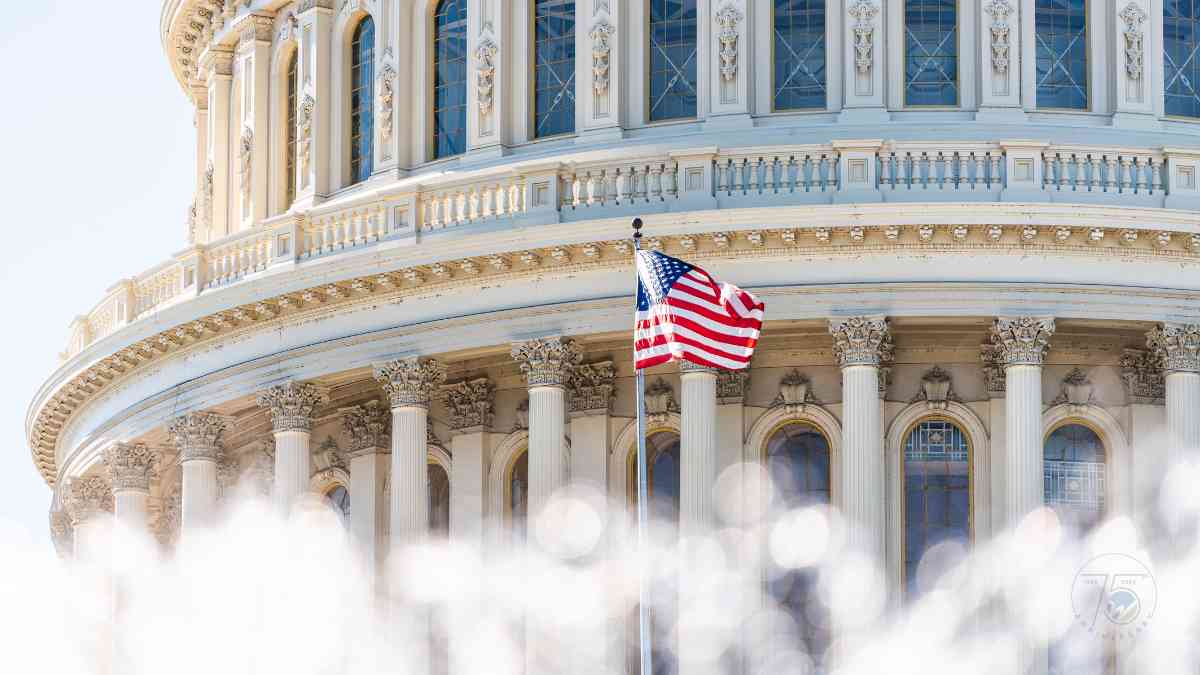Although the Wisconsin state budget did increase some taxes, most of the changes will help lower taxpayers’ tax bill. From AMT being eliminated on the personal income tax side, internet access no longer being subject to sales tax, and machinery, tools, and patterns getting an increased exemption for property tax, businesses and individuals should feel the relief in their wallets.
The Wisconsin Budget Bill signed by Gov. Scott Walker contains numerous changes to Wisconsin tax provisions. Please note these are highlights and not an all-inclusive list.
Corporate & Personal Income Taxes:
Alternative minimum tax: The bill eliminates the alternative minimum tax (AMT), effective for taxable years beginning after December 31, 2018.
IRC update: The bill modifies references to the Internal Revenue Code (IRC) for tax years beginning after 2016 to include IRC provisions in effect as of December 31, 2016, with exceptions.
In addition, for tax years beginning after 2013 and before 2017, the bill adopts certain IRC provisions included in the following federal public laws enacted in 2015 and 2016: P.L. 114-41; P.L. 114-74; P.L. 114-113; and P.L. 114- 239.
Further, the bill follows federal law in allowing individuals over 70-and-a-half years of age to exclude from taxable income up to $100,000 distributed from an individual retirement account to a charitable organization, applicable to tax years beginning after 2017.
Net operating losses: The bill generally limits the number of years that filers can retroactively recompute net operating losses to no more than four years following the unextended due date for the taxable year in which the loss occurred.
Adoption deduction: The existing deduction for adoption expenses is amended so that it can be claimed for adoptions finalized in other states and countries, applicable to tax years beginning after 2016.
Olympians: Applicable retroactively to tax years beginning after 2015, a personal income tax subtraction modification is enacted for the value of any Olympic, Paralympic, or Special Olympics medal won by an individual in an Olympic, Paralympic, or Special Olympics competition, as well as the amount of any payment such an individual receives from the U.S. Olympic Committee or from the Special Olympics Board of Directors, but only to the extent that the committee made the payment because the individual won an Olympic, Paralympic, or Special Olympics medal.
Research credit: The bill modifies the previously nonrefundable research expense credit so that 10% of the credit can be refunded, applicable to tax years beginning after 2017.
Manufacturing and agriculture credit: Under the personal income tax, the manufacturing and agriculture credit is modified for tax years beginning after 2016 to provide that the amount of the eligible qualified production activities income that a claimant can claim in computing the credit must be reduced by the amount of the qualified production activities income taxed by another state and upon which a credit is claimed for tax paid to the other state.
Wage statements and information returns: The bill lowers the threshold for mandatory electronic filing of wage statements or information returns (from 50 or more to 10 or more) for statements or returns required to be filed after 2017. In addition, the bill changes the filing deadline to January 31 for certain information returns and the reporting of nonwage payments, applicable beginning with payments made in 2017.
Broadcasters: For tax years beginning after 2018, the bill modifies apportionment for broadcasters, requiring them to make two calculations. First, gross receipts from advertising revenue will be apportioned to Wisconsin only if the advertiser’s commercial domicile is located in Wisconsin, and a broadcaster’s gross royalties and other gross receipts from the use or license of intangible property will be apportioned to Wisconsin only if the commercial domicile of the purchaser or licensee is in Wisconsin and the purchaser or licensee has a direct contractual relationship under which royalties and receipts are derived. Under the second calculation, a broadcaster must apportion to Wisconsin 1% of its gross receipts nationwide from advertising and royalties and other gross receipts received for the use or license of intangible property. If the second calculation results in a larger amount of gross receipts apportioned to Wisconsin than under the first calculation, a broadcaster must apportion gross receipts under the second calculation. However, a broadcaster is liable for no more than 40% more than the amount of gross receipts that would have been apportioned to Wisconsin if the broadcaster had used the first method.
Additional changes: Among other changes, the bill also makes certain modifications to the historic rehabilitation tax credit; the credit for taxes paid to other states; and the homestead credit.
Sales & Use Taxes:
Internet Access
Effective July 1, 2020, Wisconsin’s sales tax on Internet access charges is repealed. [Note: The grandfather clause of the Internet Tax Freedom Act (ITFA) authorizes certain states including Wisconsin to continue to tax Internet access through June 30, 2020.]
Exemptions
Construction contracts: Effective December 1, 2017, and first applicable to a contract that is entered into or extended, modified, or renewed on December 1, 2017, the exemption for lump sum contracts is expanded to apply to all construction contracts and to subcontractors. An exempt construction contract is a contract to perform real property construction activities and to provide products.
Furthermore, products that are sold by a subcontractor to a prime contractor, or to another subcontractor for eventual sale to the prime contractor, as part of a construction contract are exempt if (1) the total sales price of all products is less than 10% of the total amount of the construction contract; or (2) the products will be sold by the prime contractor as part of a construction contract, and that sale is exempt as a sale of products by a prime contractor. With certain exceptions, the subcontractor is considered the consumer of these exempt products and must pay the sales or use tax on the products. Furthermore, a subcontractor of the prime contractor is considered the consumer of all products used by the subcontractor in real property construction activities, but the subcontractor may purchase, without tax for resale, certain products that are sold by the subcontractor to the prime contractor or another subcontractor as part of the subcontractor’s construction contract for resale to the entity and that are not consumed by the subcontractor in real property construction activities.
Building materials for the University of Wisconsin and technical colleges: Effective July 1, 2018, and first applicable to contracts entered into on July 1, 2018, an exemption is created for tangible personal property sold to construction contractors who, in the fulfillment of a contract for real estate construction activities, transfer the property to a technical college district, the Board of Regents of the University of Wisconsin System, certain institutions and college campuses, or the University of Wisconsin-Extension.
Prepared food: Prepared food that is sold by a retailer is exempt, provided:
- the prepared food is not candy, soft drinks, or dietary supplements;
- the retailer manufactures the prepared food in a building that is assessed for Wisconsin property tax purposes as manufacturing property, or in a building that would be assessed as manufacturing property for Wisconsin property tax purposes if the building were located in Wisconsin;
- the retailer makes no retail sales of prepared food at the building where the manufacturing takes place; and
- any of the following applies: (1) the retailer freezes the prepared food before its sale and sells the prepared food at retail in a frozen state, and the prepared food is not sold with eating utensils that are provided by the retailer; or (2) the prepared food consists of more than 50% yogurt.
Occasional sales: Beginning January 1, 2018, the threshold for the occasional sales exemption (currently established by rule) is increased from $1,000 to $2,000 per year, and the threshold is codified in a presumption. Thus, it is presumed that a seller is not pursuing a vocation, occupation, or business or a partial vocation or occupation or part-time business as a vendor if the seller‘s total taxable sales price from sales of tangible personal property, other taxable items, or taxable services is less than $2,000 during a calendar year.
Amusement devices and prizes: Effective December 1, 2017, an exemption is created for video and electronic games sold in a tangible form to a person in the business of providing taxable services through an amusement device, provided the video or electronic game is used exclusively for the amusement device. For purposes of this exemption, a video or electronic game sold in a tangible form is a separate sale from the amusement device through which the video or electronic game is played if the sales price of the video or electronic game is invoiced separately from the sales price of the amusement device.
Effective December 1, 2017, an exemption is created for tangible personal property that is used exclusively as a prize awarded or transferred through the use of an amusement device and is sold to a person in the business of providing a taxable service through an amusement device.
Tournament and league entry fees: Effective December 1, 2017, an exemption is created for tournament or league entrance fees advertised and set aside as prize money.
Beekeeping: Effective December 1, 2017, beekeeping of any number of hives is considered the business of farming, and beekeepers are allowed the sales and use tax exemptions available to farmers. “Beekeeping” is defined as the business of moving, raising, producing, and other management of bees or bee products, regardless of the number of hives of bees managed. Before these amendments take effect, under current sales and use tax rules, farming includes the raising of bees and the production of honey products by a beekeeper having 50 or more hives.
The exemptions for farmers that will be available to beekeepers include exemptions for tractors and machines used in the business of farming; other business inputs (including bees, beehives, and bee combs as well as containers for fruits, vegetables bee products, grain, hay silage, and animal wastes), provided they are used exclusively in the business of farming; electricity sold for farming; fuel sold for use in farming; and drugs used on farm livestock or bees. In addition, a person selling drugs for bees to a veterinarian will be considered a retailer.
Farm-raised fish: An exemption is created for farm-raised fish sold to a fish farm that is registered with the Department of Agriculture, Trade, and Consumer Protection, or to a person who holds a valid permit for the stocking of fish.
Local Room Tax
Municipalities are authorized to impose the local room tax on lodging marketplaces and owners of short-term rentals. A “lodging marketplace” is an entity that provides a platform through which an unaffiliated third party offers to rent a short-term rental to an occupant and collects the consideration for the rental from the occupant. “Short-term rental” means a residential dwelling that is offered for rent for a fee and for fewer than 29 consecutive days.
Furthermore, lodging marketplaces must register with the Department of Revenue for a license to collect taxes imposed by Wisconsin related to a short-term rental and to collect room taxes imposed by a municipality. After a lodging marketplace applies for and receives such a license, it must do all of the following:
- If a short-term rental is rented through the lodging marketplace, the lodging marketplace must collect sales and use taxes from the occupant and forward such amounts to the Department of Revenue.
- If a short-term rental that is rented through the lodging marketplace is located in a municipality that imposes a room tax, the lodging marketplace must collect the room tax from the occupant and forward it to the municipality. A municipality may not impose and collect a room tax from the owner of a short-term rental if the municipality collects the room tax on the residential dwelling under this provision
- The lodging marketplace must notify the owner of a short-term rental that the lodging marketplace has collected and forwarded the applicable sales, use, and local room taxes.
Other Provisions
Bad debt deduction: The effective date of provisions allowing a retailer to claim a deduction or a refund of sales taxes related to bad debt of an affiliated lender that extends credit through a private label credit card, dual purpose credit card, or dealer credit program is delayed to July 1, 2018 (previously, July 1, 2017).
Statistical sampling: Effective March 1, 2018, the Department of Revenue is required to establish by rule the criteria applicable to sales and use tax field audits for which an auditor uses a statistical sampling method, i.e., the auditor randomly selects a sample of transactions and uses probability theory to evaluate the sample results. The department must establish criteria to provide that any person with less than $10 million in annual sales during any year at issue in a field audit may choose to have the audit conducted using statistical sampling under this provision. In addition, the department must establish criteria under this provision that specifies the number of transactions necessary to qualify for statistical sampling and the maximum sample size.
Off-highway motorcycles: Off-highway motorcycles are generally treated the same as other registered vehicles for sales and use tax purposes. Thus, sellers of off-highway motorcycles are considered retailers; off-highway motorcycles that are purchased outside Wisconsin by nonresidents and are later brought into and used in Wisconsin or are titled or registered in Wisconsin for personal, noncommercial use are exempt from use tax; and the occasional sale exemption for private party sales of off-highway motorcycles is limited to transfers to certain family members or corporations owned by the transferor or the transferor’s spouse; off-highway motorcycles registered or titled in the name of the transferor; and sales in which the transferor is not engaged in the business of selling off-highway motorcycles. In addition, registration of off-highway motorcycles is conditioned upon filing a sales and use tax report and paying applicable taxes.
Property Taxes:
For property tax exemption purposes, beginning with property tax assessments as of January 1, 2018, the term “property owned by a church or religious association necessary for location and convenience of buildings” includes property necessary for the location and convenience of a building that the church or religious association intends to build to replace a building that has been destroyed by a fire, natural disaster, or criminal act. Such property is exempt only for the first 25 years after the year in which the building was destroyed.
In addition, real property not exceeding 40 (currently, 30) acres of any bible camp conducted by a religious nonprofit corporation is exempt first applicable to property tax assessments as of January 1, 2018.
Beginning with property tax assessments as of January 1, 2018, machinery, tools, and patterns (not including items used in manufacturing) are exempt from property tax.




